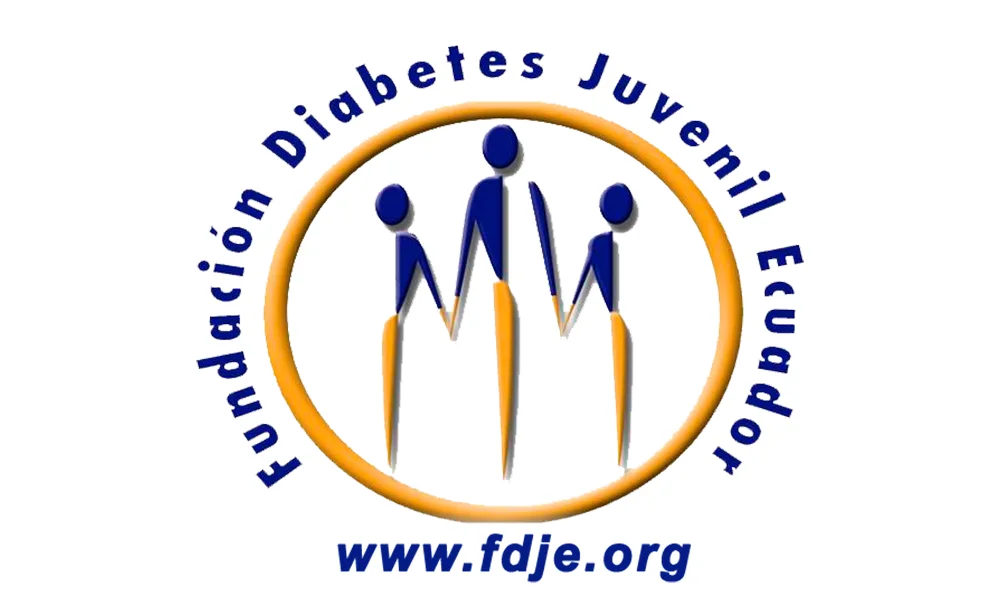
About
The Fundación de Diabetes Juvenil del Ecuador was created in 2003.
Mission
Contribute to improve the quality of life of the community living with type 1 diabetes, promote the education of people with diabetes and their environment, visualize their needs and advocate for the respect of their rights.
Vision
To be a technical and humanitarian organization, a reference in type 1 diabetes education in Ecuador; an organization where people, public and private institutions can come to receive training, or support the cause of the community with type 1 diabetes.
Main Focus
- Educate people with diabetes and their families on diabetes management.
- Improve and facilitate access to care and medical supplies.
- Promote a positive attitude in people with diabetes, their families and their environment.
- Investigate the situation of people living with type 1 diabetes in Ecuador.
- Advocate for the adoption of public policies on behalf of people with type 1 diabetes.
Activities
Camp Friend Camp Ecuador: Held once a year, this activity facilitates connections between children, adolescents and young people who share the same condition. It provides an opportunity to share experiences and exchange concerns and learning in a comfortable, safe and joyful environment.
T1D family meetings: A face-to-face project, with the objective of educating, socializing and training children, adolescents and youth with type 1 diabetes, their parents or caregivers. An FDJE team travels to places where the type 1 diabetes population can meet.
Sponsorship programme: This programme seeks to contribute to the adherence to type 1 diabetes treatment through the mobilization of donations to the most socially and economically vulnerable families. Insulins and supplies are delivered and a comprehensive training, monitoring and follow-up plan is carried out, promoting family co-responsibility in the area of health and self-care. The programme covers around 130 children, adolescents and young people with type 1 diabetes.
FDJE family recreational walk: An activity with a social approach aimed at bringing families with diabetes together to exercise in open spaces, in an atmosphere of friendship.
Youth Leaders training school: this social project prepares young people who wish to help as volunteers in FDJE educational projects. It is a training space for young people 16-23 years old, on diabetes, nutrition, psychology, organization and fun that seeks the integral formation of leaders ready to interact, share and monitor children and adolescents with type 1 diabetes, within the framework of projects carried out by FDJE.
Carbohydrate counting workshop: FDJE is a pioneer in Ecuador in disseminating this useful tool to people with diabetes to plan their food and effectively control their glucose. Basic and advanced level workshops are conducted.
Sesiones Educativas para Familias debutantes: Es un programa de educación inicial gratuito en diabetes y nutrición que prepara a las familias con un diagnóstico reciente en diabetes tipo 1 para empezar a tomar el control de esta enfermedad. Tiene modalidades presencial y virtual.
Educational sessions for new families: a free initial education programme on diabetes and nutrition that prepares families with a recent diagnosis of type 1 diabetes to start taking control of the condition. It has face-to-face and virtual elements.
Publications & Newsletters
The FDJE Information Bulletin is published every 2 months. It focuses on the main activities of the association and is sent to national and international organizations that work in diabetes, the diabetes community in Ecuador and their sponsors.
Message from the President
“Being a member of the International Diabetes Federation is important factor as the work that we are doing transcends more than our country. The work of IDF, the vast experience of its members and the international reputation of the organization strengthens the work that we perform locally to improve the quality of life of the people living with type 1 diabetes. We are convinced that the increase of people with diabetes worldwide requires actions, policies and coordinated strategies that let us face the pandemic from the local, regional and global perspectives. It´s easier if we walk together!”